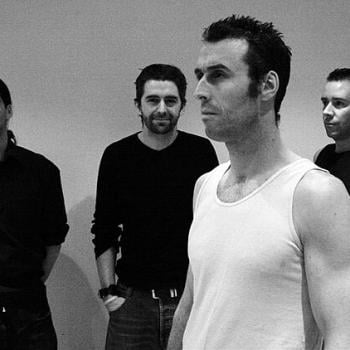When the time of the locusts has passed, the spirit of God, God’s own breath and wind, shall fall on “all flesh,” young and old, men and women, slave and free. What can this mean for Joel? The universality of the gift of God’s spirit on all, regardless of social status, regardless of the privilege of age, is an amazing vision. Among other things, the vision means that the traditional hierarchies of power are destroyed. As the apostle Paul later affirmed in his Galatian letter, in Christ there is no longer “Jew nor Greek, slave nor free, male nor female,” which apparently means that Christ has come to question all those barriers we erect between classes and races and genders, and claims that God is equally open to all. Surely, this is what Joel’s vision implies. Little wonder that Luke found in the words exactly the right language for Peter’s sermon, a word uttered in the face of all manner of people hearing in their own languages the great things of God. To those who sneer that these are only “drunk,” Peter quotes to them Joel 2. They are perhaps “drunk on the spirit of God,” which has come to them all, but wine has not passed their lips this day. In short, Luke thinks that Joel’s vision has come to pass at Pentecost.
Yet, Luke’s use of Joel does not stop with that wonderful vision. He goes on to quote Joel’s darker imagery of “portents in heaven and on earth, blood and fire and columns of smoke,” though Luke reads a “smoky mist” rather than a smoky column. The sun will darken and the moon become blood before the great and terrible day of YHWH comes, shouts Joel (Joel 2:31). Luke turns the day into a “glorious one” rather than a “terrible one.” Both then use the line, though with slightly different emphasis: Joel: “Everyone who calls on the name of YHWH will be saved” (Joel 2:32); Luke: “Everyone who calls on the name of the Lord shall be saved” (Acts 2:21). Joel goes on to suggest that the saved of YHWH will include escapees from Jerusalem, “those whom YHWH has called” (Joel 2:32b). This part is left out by Luke, because Peter’s sermon now turns to a recital of what has happened to Jesus of Nazareth and what role the Israelites had in it.
Both, however, focus on “being saved.” That phrase alone could generate one hundred sermons at least. The Hebrew word is yashah. From that word come the following names: Joshua, Isaiah, Hosea, and finally Jesus. To be saved is to be rescued by the power of God, to experience a victory over all negative powers that have been defeated by God. When a street corner evangelist demands, “Sister, are you saved?” he is asking if she has experienced a victory over all negation, over all things that would make her life less than God desires for it to be.
Thus, in Joel, and I would say also in Luke, there can be finally no separation between material and spiritual salvation. If you know you have been saved by God, your whole life has been transformed, both inwardly and outwardly. This is not a matter of belief only; it is a matter of action, of behavior. “Fruits” of all variety are the true test of salvation, not mere words, not correct beliefs. The test of salvation is what it has been since the ancient days of the Hebrews. “Love YHWH your God with all your life, with all your strength, with all your will,” and Leviticus adds, “Love your neighbor just as you love yourself.” It is hardly an accident that Jesus, too, added these phrases together, making them the test of salvation from God. In this salvation is our hope, our freedom from despair, our promise for a future where God reigns in our lives.





